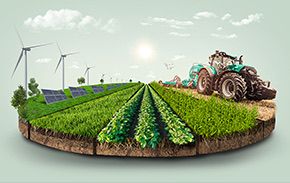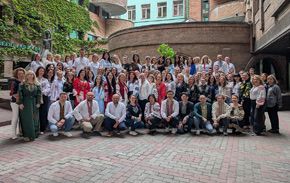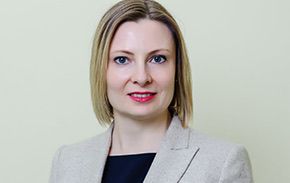Latifundist.com, 27.06.2025
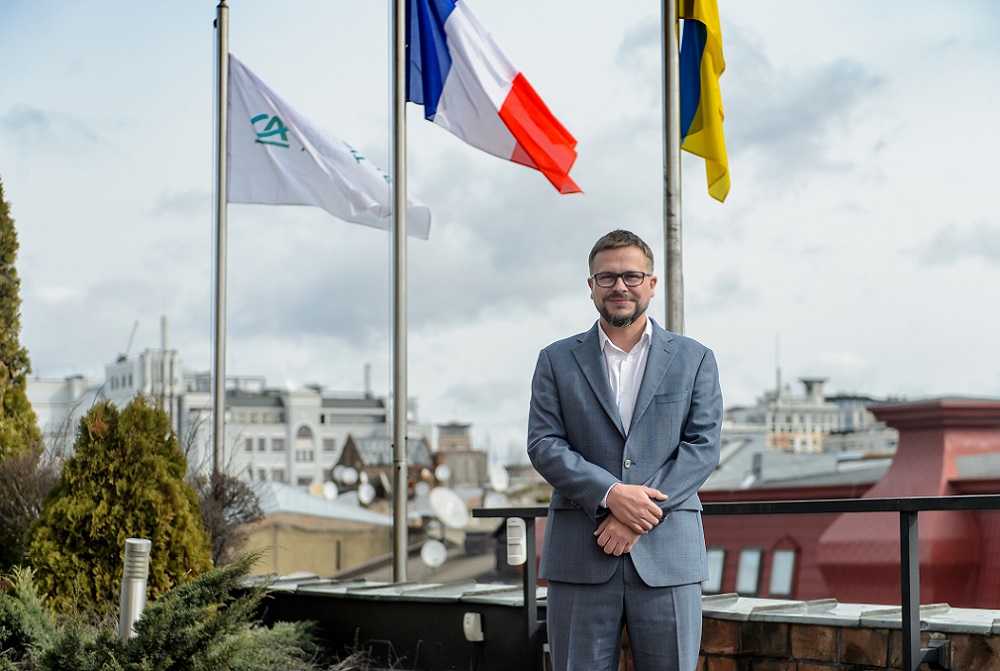
Alexandre Tchesnakoff, Board Member of Crédit Agricole
«Processing is my biggest pain in Ukraine», — confides in us Alexandre Tchesnakoff, Board Member of Crédit Agricole Bank. He has been in the country for nearly 9 years now and he can see quite well what the deterrents of the investments in agriculture are. In the extensive interview we delve into the bank’s plans, as well as the farmers’ worldview, difference between France and Ukraine, trust and capital. Meanwhile, Crédit Agricole is launching a new pilot project – lending to small farmers. It also incentivizes the agrarians to consider ESG. It’s about energy independence. And, possibly, about survival of agribusiness in 2025.
Our meetings with Alexandre are like clockwork, this time we reunited to mark Crédit Agricole’s 32 years on the Ukrainian market. It’s not every day that you can encounter a Paris-Grignon graduate in Ukraine, who is also an agrarian banker with a practical background in farmer financing in France. He is also a brilliant conversationalist with whom you can discuss any topics, which we are happy to take advantage of time and again.
Latifundist.com: Alexandre, lately rumour on the agrarian market has it that there will possibly be mergers of the agrarian companies. Do you think the consolidation of the large agrarian holdings is likely?
Alexandre Tchesnakoff: In Ukraine everything is possible and mergers of large agri-holdings is not out of the question. A different question is whether it makes sense. As the land bank does have limitations to its effectiveness – after a certain capacity is exceeded, it goes down. Whereas an enormous land bank does not a priori guarantee additional profits and opening new opportunities. Granted, large agrarian holdings of Ukraine can continue land resources consolidation. However, I am not confident it’s the right way to go about it.
France is not Ukraine
Latifundist.com: How big were the biggest land banks of your customers in France?
Alexandre Tchesnakoff: France is a different story. The average farm size is about 60 hectares, it’s a known thing. The agrarian cooperatives are the ones shaping the agrarian market, as these are farmer networks. Some of them are comparable with Ukrainian agrarian holdings in terms of land banks. Stand-alone farmers can have 500-1000 hectares of land at most.
Latifundist.com: In the neighbouring Poland, one can come across the discussion whether the million-farmers model is the right one and whether it’s better to use the effect of scale. Are there similar discussions in France?
Alexandre Tchesnakoff: Gravitating towards the large companies is noticeable on the French agrarian market and there are objective reasons for that. I recently spoke with the president of one of the regional banking associations in France. He is a farmer from Bretagne himself. We compared the situation in Ukraine and in France and came to the conclusion that in France, one of the main challenges for the next decade is half of all farmers retiring. That is why consolidation and enlargement of farms is needed — especially considering that Ukraine will sooner or later be integrated in the EU.
Still, the French farmers – even the biggest ones – have a long way to go compared to the scale of Ukrainian agrarian holdings. Small agrarian companies are always less effective than the large ones. They have fewer options to minimize expenses such as purchasing fertilizers, machinery, etc. and to increase revenues.
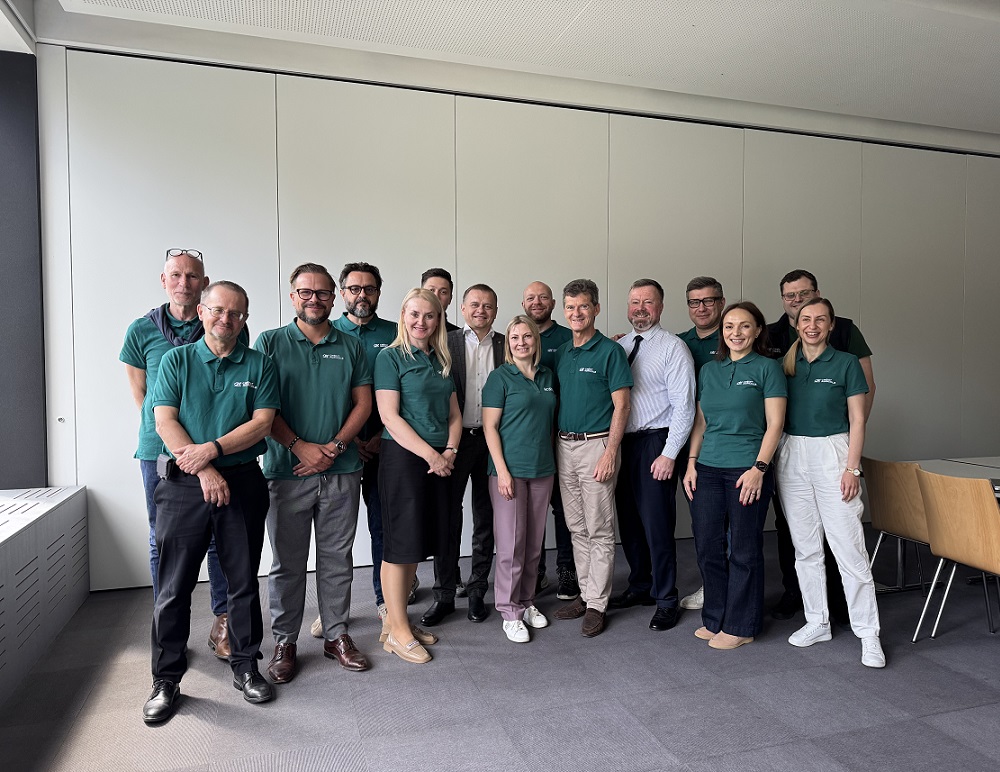
Credit Agricole Board Members visited Poltava as part of their regional tour of Ukraine
Cooperatives — a task for our successors?
Latifundist.com: You mentioned French agrarian cooperatives. We recently spoke with Clément Coussens of Agro КМР, and according to him agrarian cooperatives haven’t been long-lived in Ukraine due to the lack of trust among people. Why do you think we don’t have such cooperatives as InVivo or Maïsadour Groupe Cooperatif in Ukraine?
Alexandre Tchesnakoff: In France, the agrarian cooperative movement has come about historically. Still, it is a dynamic system. It evolves gradually. I already mentioned the consolidation of cooperatives. As an example, Euralis and Maisadour in the south west are now in the process of merging. It will be one giant cooperative covering the quarter of France. Decent size.
Why aren’t there similar cooperatives in Ukraine? Due to historical reasons, probably. Moreover, attitude to business in Ukraine and in France is different. Entrepreneurs in France, even the bigger ones, care more about benefitting the community where they work. They are prepared to prioritize investing in the development of the region over earnings. While in Ukraine, the business is more geared towards effectiveness, it is more capitalist. If you are effective and profitable, you decide yourself what to do with the money.
Green bonds pioneer
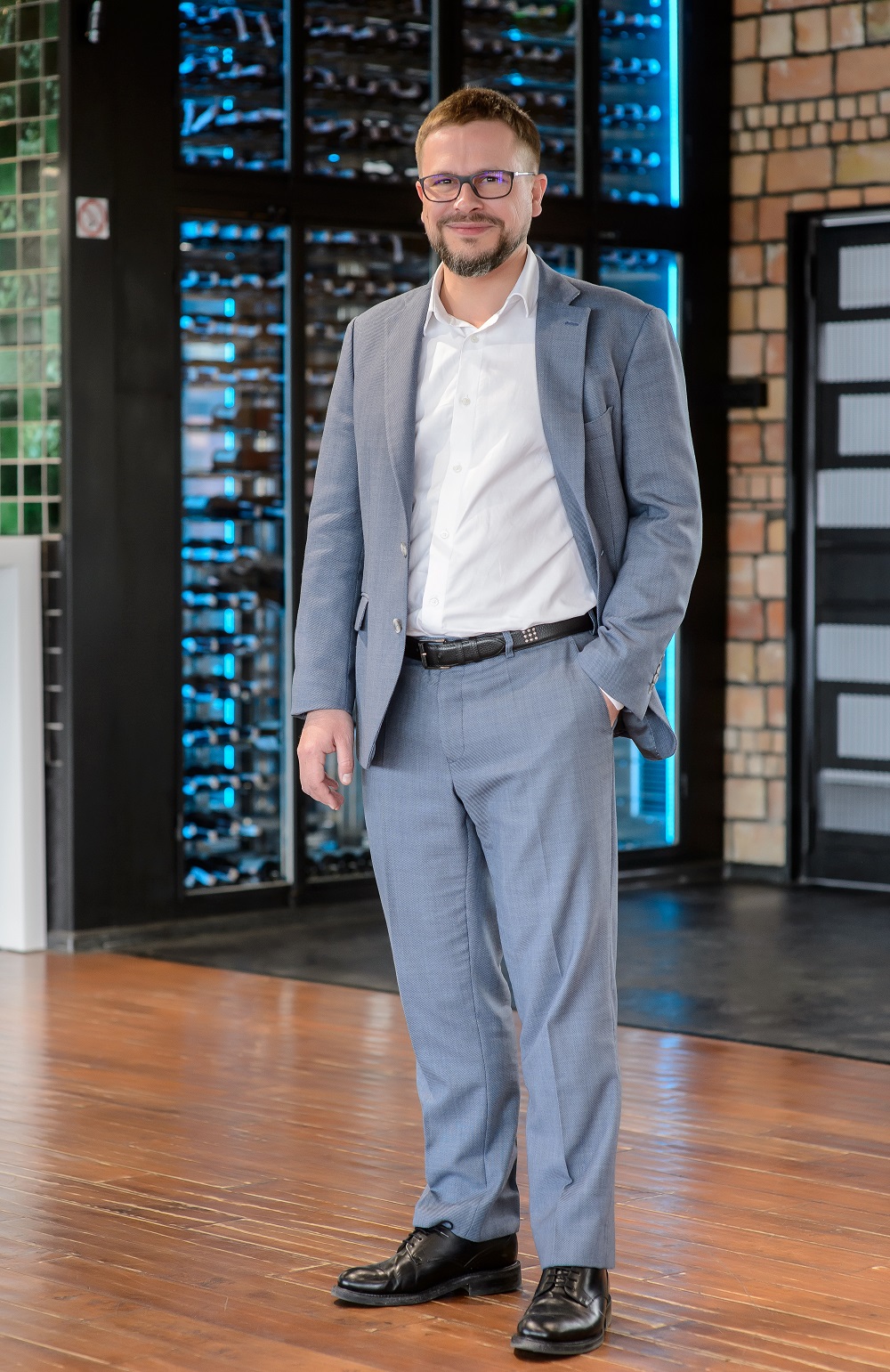
Alexandre Tchesnakoff
Latifundist.com: We smoothly transitioned to the topic of the ESG. If I remember correctly, your bank is among the industry pioneers. Have you been working in this area for long?
Alexandre Tchesnakoff: Yes, Crédit Agricole Group took up this work 20-25 years ago. Actually, we were green bond pioneers. Crédit Agricole Group is the best bank in Western Europe in terms of sustainable financing (ed.: according to Euromoney Awards for Excellence 2024). So, we have been on good terms with ESG for a long time. We have been actively working on implementing the ESG principles in Ukraine for 5 years.
It’s my personal area of interest. Even before coming to Ukraine, I promoted financing of solar and wind power stations in France. I would like to see this industry grow in Ukraine as well.
Latifundist.com: Why did ESG come to prominence in Ukraine 5 years ago?
Alexandre Tchesnakoff: It was the moment when the peak green tariff was in effect in Ukraine. From the perspective of solar and wind power growth, Ukraine looked like Eldorado at the time. It was profitable to invest in ESG then. Later, people’s attitudes changed when problems with electricity, fuel, and logistics came about. People realized that business should be more independent and effective in terms of energy. It is all closely intertwined with ESG. Improving production efficiency, more up-to-date equipment – it is all about energy.
We support the global strategy of Crédit Agricole Group and in 2024 we launched our own ESG strategy in Ukraine. ESG is not limited to energy, it encompasses all environmental, social and governance factors. At the same time, lion’s share of attention goes to energy considering the challenges faced by the country’s energy sector. Last year, our bank financed around 10% of all new power-generating facilities in Ukraine.
It’s a real-life example of how we implement the AIR 2028 strategy: Aim is to Invest in Recovery. Our contribution to the energy sector of the state is a step towards recovery.
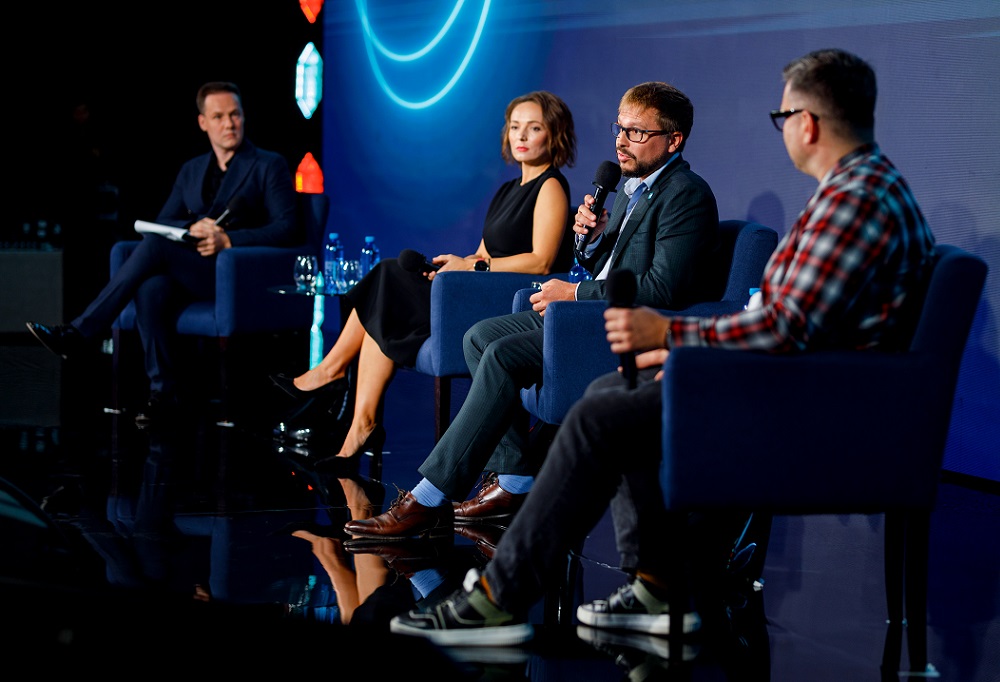
Presentation of bank strategy AIR 2028 Aim is to Invest in Recovery
Latifundist.com: What else do you finance in the context of ESG?
Alexandre Tchesnakoff: We finance updating the machinery fleet used for No-till, Strip-till, which helps save money and mitigate climate risks. We also keep in mind that S in ESG stands for Social, i.e. the social component. In Ukraine, especially now in the wartime, the social component is crucial. We, as a bank, are trying to consider loan applications not only from economic perspective, but from a social one as well.
To illustrate, in the end of the previous year we financed purchase of a combine harvester by a small farmer who operates to the north east of Kharkiv and wanted to buy this combine harvester. His region is not the safest and his P&L is far from perfect. But we took the risk, as this is our customer that had taken out a loan to buy a combine harvester before, lost it due to the war and still keeps paying for it. We believe that it is part of our mission — to support customers like that.
Social component of ESG also includes charity initiatives we undertake as a bank. In the wartime we have only expanded our budget for aid and accelerated realization of such projects. Over a 100 charitable initiatives for the amount of over UAH 170 million is the result of “We Care!” corporate social responsibility program in the wartime. Usually funds go to purchasing medical equipment for hospitals.
Trump is not a barrier to ESG
Latifundist.com: Against the backdrop of Donald Trump’s policies, some ESG foundations are scaling down their operations, in addition the green course in Europe is being rolled back. How does it affect your position?
Alexandre Tchesnakoff: Talking about the green course. As a bank, we can see that this year interest towards investing in such projects and facilities is lower compared to last year. It is partly due to the objective reasons: people and economy have adapted to the wartime conditions. There are problems with energy sector, but they are not as dire as they were last year, which was an additional motivator for people to transition to alternative energy sources. At the same time, there is demand on the market – for implementing biogas production technologies, for instance. Clearly, they are more complicated than traditional power generating technologies and the payback is slower, but the demand is there. And it is an important industry for our Group .
We and I personally are confident that ESG is an inevitable move if we want our children to inherit the planet in passable condition. And for Europe as a continent it’s an issue of energy independence from the rest of the world.
Latifundist.com: So, the news from across the pond do not affect you.
Alexandre Tchesnakoff: Not at all. Some politicians’ reacting and acting are short-lived and they are not always in line with their actual actions. Our vision is more farsighted. Looking into the future, ESG definitely has potential.
Latifundist.com: Let’s move to a more practical realm. How can a farmer get a loan taking into account ESG?
Alexandre Tchesnakoff: In 2025, we introduced our ESG questionnaire for agrarian customers. We ask clients to fill out the special questionnaire to understand what they do in this area, whether these are short- or long-term actions, what is their level of maturity. In 2026, we are planning to introduce specific financial products to the market that will reflect the demand.
Latifundist.com: That is, in order to obtain a loan from Crédit Agricole Bank, a farmer must complete the ESG questionnaire, right?
Alexandre Tchesnakoff: Exactly. We figuratively marked the year 2025 as the year of changes. We have certain products and partnerships, for example, with solar panel providers. We also joined effort with the leading companies in other areas – eAgronom and Agrosem – and launched the Adaptation to Climate Change in Agriculture Program.
Now, however, our primary focus is on gathering research – surveying our customers. By the way, a similar initiative was introduced under the 5-7-9% Program soon after us.
Between a carrot and a stick
Latifundist.com: Why do you ask your customers to complete the ESG questionnaires?
Alexandre Tchesnakoff: Our task is helping the customers to develop in this area and to improve their carbon footprint. And it should not be a stop frame, but an evolution.
If we see that a customer’s indicators are not stellar, but they objectively evaluate their condition and develop a strategy, some measures to improve the situation, we will be happy to help and finance such customers.
Latifundist.com: Last year you said that you will incentivize customers who transition to sustainable practices. In which ways: better financing terms, access to partner programs?
Alexandre Tchesnakoff: Yes, more loyal financing terms, access to programs like 5-7-9%, which are very relevant today. Also, access to external assistance like grants that are distributed through banks. These are the carrots, as under the programs the ESG requirements are becoming more rigorous.
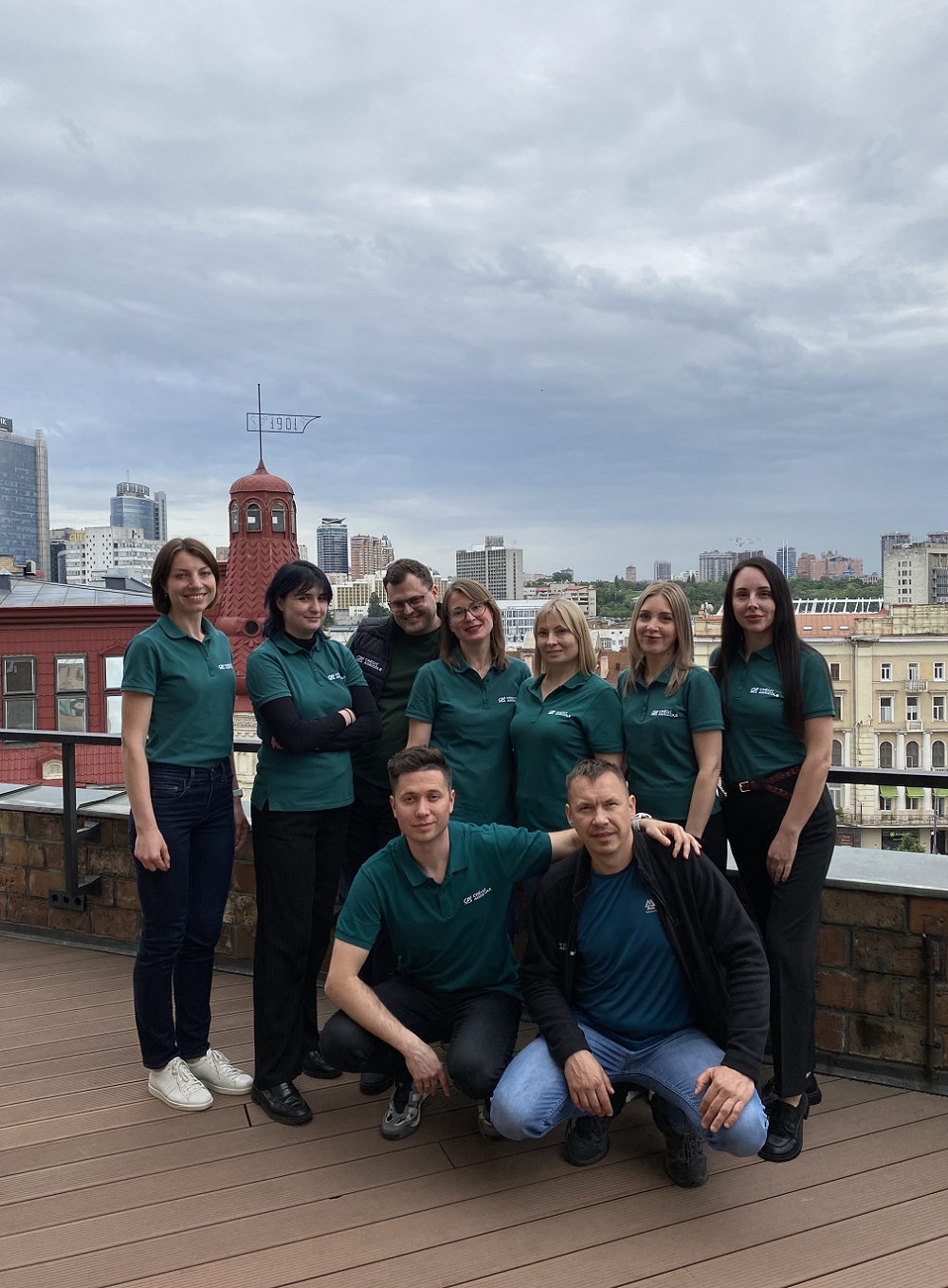
Agribusiness Support and ESG Department of Crédit Agricole Bank
Credit Agricole is in active cooperation with international financial organizations in order to support Ukrainian businesses. We work with the EBRD and IFC to finance the critical industries in Ukraine, including agriculture. We have currently signed agreements with them for the amount of 240 million euros to finance Ukrainian economy and we are preparing two new ones.
Latifundist.com: How do your customers feel about the matter? Do they consider it untimely, as the war is ongoing, existential survival is at stake and you are talking about “some ESG”?
Alexandre Tchesnakoff: That is why we put effort into making the questionnaire as simple and convenient to fill in as possible — user-friendly, as they say. Obviously, both in the time of war and peace very few people like it – one always wants to get more with the same effort. But such is life. In order to assess certain aspects, we need to look at various parameters that were less important before the war. The war has lasted for over three years. Both the economy and the people have adjusted to some extent. However, it is not the reason to ignore things like ESG. On the contrary, for thousands of people it is the matter of effectiveness and business development.
Now is the time to create a system. When the respective statistical data is accumulated — by our bank as well as by the others, we will be able to show everybody that ESG has been and will be very important in Ukraine, it will open great opportunities for our customers both within and outside Ukraine.
Benefits of partnership “à trois”
Latifundist.com: Could you explain what your cooperation with eAgronom and Agrosem is based on?
Alexandre Tchesnakoff: It is a trilateral partnership. The program provides comprehensive range of services to agribusiness to ensure transition to sustainable practices. These are expert consultations on sustainable production, selection of land plots to boost the effectiveness of environmental initiatives and development of detailed transition plans with capital investment calculations. As a bank, we provide financing. Agrosem provides machinery and expert consultations. Finally, eAgronom ensures that the customers receive carbon certificates — it measures everything and assesses СО₂ emission reduction. Each partner plays a role, classic cooperation.
Latifundist.com: Do you have faith in this story? Carbon credits have received mixed feedback.
Alexandre Tchesnakoff: It is hardly a secret, that it is not very well-developed in Ukraine. That is why we started looking for partners and have chosen Agrosem and eAgronom. I believe that this partnership is promising. I know that some customers are sceptical. But others are willing to try.
Latifundist.com: The idea is that extra 30 euros per hectare can’t hurt, right?
Alexandre Tchesnakoff: That is how those who participate in the program perceive it — as a potential significant bonus. If the program works — great. If it doesn’t — not a big deal. That is, they do not rely on it as the only tool for business growth and survival. Like any new technology or program, ESG at its conception needs early adopters — people willing to try it. I am sure that the program will work, but it takes time.
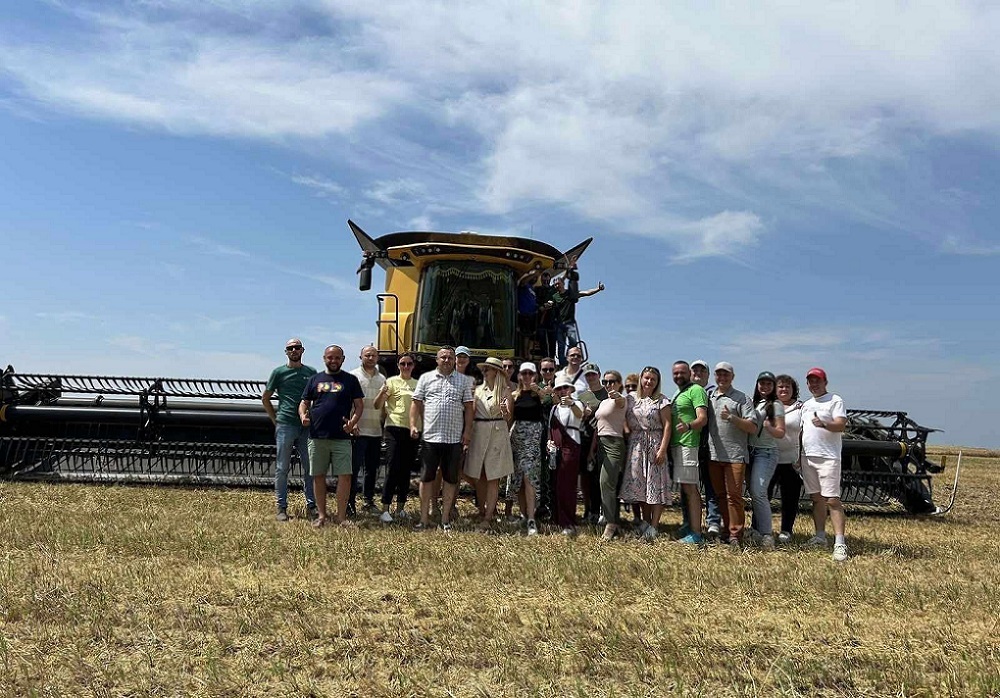
Participants in the Agro School, Crédit Agricole Bank's flagship educational project
Biogas: this prospect is not for everyone
Latifundist.com: A banker I know said: “I am not a strong believer in biogas economy, but if the company A launches it, I will finance it, as I believe in its business model”. Biogas for you is more about the economy or extension of ESG?
Alexandre Tchesnakoff: Biogas is also part of ESG. For Ukraine the huge advantage is that it exists. If it wasn’t financially motivated, nobody would work with biogas. People in Ukraine count their money very well. Also, biogas is a complicated technology that has to be fine-tuned. It is not for everyone. It is easier to see that a field is sun-lit and to place solar panels there. I exaggerate, of course, but that’s the gist. Biogas means chemical reactions. One has to follow the correct recipes, the processes. If something goes wrong, the facility halts for a long time, restarting is a complicated procedure.
For companies like МХП (Myronivsky Bread Product), biogas is a perfect option as they have all the needed components: waste products, raw materials, everything is in close proximity, thus guaranteeing a maximum synergy effect, resulting in waste utilization and heat and gas generation. It is a great advantage for Ukraine, as, unlike in France, there are many large agrarian holdings here that are self-sufficient in terms of providing biogas reactors with raw materials.
Biogas stations are usually smaller in France. Farmers have to negotiate raw materials supply with neighbours, which means depending on them, and it complicates investments. No such issue in Ukraine, which is an advantage. The only problem is that the result is not as instant as one would like. Biogas payback period can be 7-10 years. You just have to get used to it.
Grain for the field, justification for petrol
Latifundist.com: Do you believe in bioethanol? In Ukraine, many bioethanol production plants are being built. Do you pay attention to these things? As 5% of bio components in petrol are unlikely to influence the market, while bioethanol export prospects are dubious.
Alexandre Tchesnakoff: Frankly speaking, I am more sceptical towards bioethanol, than towards biogas. Firstly, I cannot wrap my head around using fields for petrol production. I think that it is better to use land for something more beneficial for the consumers. Secondly, even in Europe adding a certain percentage of bioethanol to petrol looks like an excuse: oh, look, we added something “green”, that’s it. That is why I am not a great proponent of this industry. I am aware that it exists, there are customers that work with it and earn money, there is market for it. However, it would be an exaggeration to say that I believe in its significant growth.
Latifundist.com: Last autumn we said that the agrarians were finally offered decent prices on grain and did not have to take out new loans for sowing, paying off the previous ones instead. Is this year’s sowing special in any way?
Alexandre Tchesnakoff: This season is characterized by the fact that the majority of our customers, namely farmers, had good results last year, which is great considering the difficulties of the previous years. Thanks to recovering prices on crop products and stable operation of the Black Sea ports, we observe significant improvement of the agrarian producers’ position.
Consequently, they took out loans less and primarily used own funds to finance operational expenses. In particular we noticed that credit facilities to finance sowing and related expenses were used roughly a month later than usual. Now the demand for credit facilities has increased, but it was delayed. On our part, we offer our customers 70 partner programs that can help provide a company with everything it needs on favourable terms. The list of such programs is expanding.
Latifundist.com: So, the demand on loans is not very high?
Alexandre Tchesnakoff: I wouldn’t say it’s not high, rather that the season for using the loans has shifted as the farmers used their own funds instead. Moreover, compared to the previous year we still record the loan portfolio growth. I would like to note that an increasing number of customers use our services for investments, purchase of agrarian equipment. The sales of the agrarian equipment went up in 2024, in 2025 the positive dynamic remains. Machinery leasing is also ramping up.
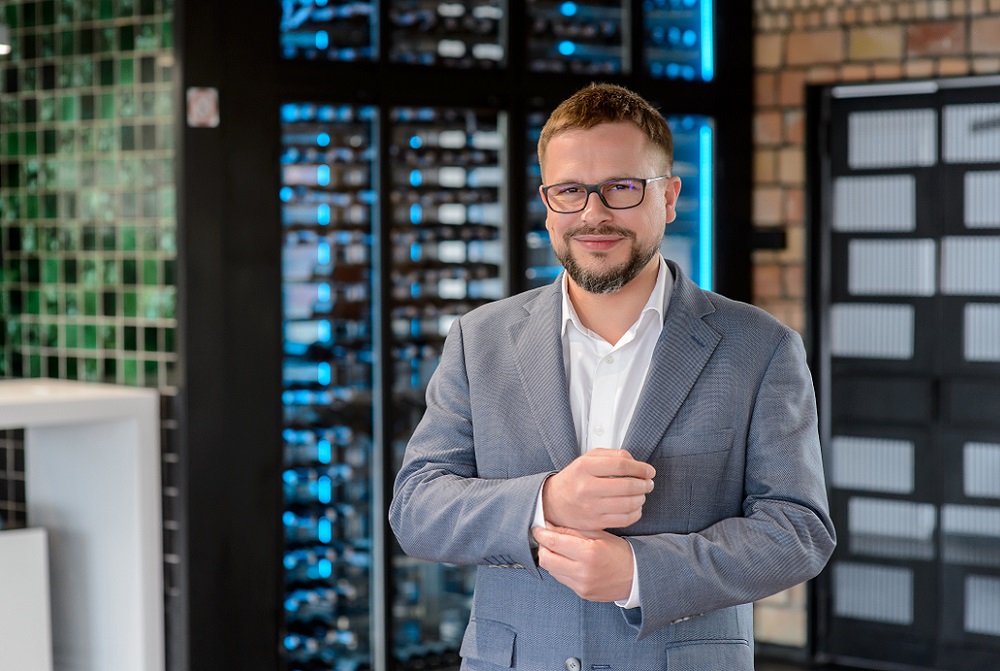
Alexandre Tchesnakoff
Investment course on poultry farming
Latifundist.com: We heard that Crédit Agricole Bank has started financing animal husbandry more. Is it about animal husbandry projects?
Alexandre Tchesnakoff: We are always willing to do it, we just see more demand for such projects now.
Latifundist.com: Is it primarily about expanding the existing farms or some new projects? What do you see in this niche?
Alexandre Tchesnakoff: There are animal husbandry farms that want to grow: increase livestock, if these are dairy farms, modernize milking systems. In the meat segment, we see investment in processing — meat products production technologies. The majority of these projects are realized by the existing companies.
However, there are new players. In particular, poultry farming is booming — after the last year’s problems with eggs on the international markets caused by the avian flu outbreaks. Players from adjacent agrarian sectors have seen it and took note. The great advantage of Ukraine lies in its being very adaptive: if there is a trend, there are always people willing to try and invest. Egg production and poultry farming are on trend now, such booms have always been interesting and we watch them with interest. It has always been an exciting task for a banker — to assess whether a new player is capable of realizing a project. Sometimes we are pleasantly surprised.
Latifundist.com: Can you think of the typical mistakes that companies that engage investment financing make? What do they fail to consider?
Alexandre Tchesnakoff: I have a feeling that the economy of Ukraine has come back to the 2019 level. The production continues, loan interest is fairly low and it’s an interesting picture considering that the war is ongoing. The biggest mistakes I witnessed in the previous half year are linked to that. The most common mistake is people not being serious about developing a business plan. Customers believe that due to the changed situation in the country the banks are prepared to lend to everyone and everything. As a consequence, we get loan applications for large amounts with superfluous project description from some customers. However, any bank is very careful with money and will not lend to them for realization of a dubious project.
Latifundist.com: Are there industries you are unlikely to finance? For instance, a company comes wanting to build yet another oil extraction plant in Khmelnytskyi region. Are there any informal restrictions when you see that the project economy is weak?
Alexandre Tchesnakoff: There are industries where we have clear limits, such as tobacco industry or other items from Crédit Agricole Group’s classic “black list”. As for informal restrictions, we assess each project separately. Sometimes the project’s weak point is obvious. At the same time, we don’t have any bans by geographic criteria. We finance projects in the western and eastern regions, where the risks are considerably higher.
Certainly, we have our internal criteria. However, it is always a combination of factors. It would be hard to point out something specific that we definitely wouldn’t support. It is not a ban, but rather an evaluation.
Where IS the processing?
Latifundist.com: From the first days of war in Ukraine, people keep talking about processing. What do you see in this segment — more talk or concrete projects?
Alexandre Tchesnakoff: Processing is my biggest frustration in Ukraine. And the situation hasn’t changed in any meaningful way: processing projects exist, but they are few and far between. I, however, am sure that processing potential in Ukraine is much higher, both for the domestic market and export, so I hope that attitudes will change eventually.
I believe that the current situation is linked to the country lacking stability for the long-term investment. Whereas processing, especially where creating added value is concerned, involves long-term projects. Nevertheless, I dream of the powerful processing industry in Ukraine, growth of products manufacturing — e.g. frozen foods — like they do it in Europe, in France. All the prerequisites are there. All we need is for the situation in the country to stabilize.
Latifundist.com: You spoke about solar power stations. In the first quarter you signed new agreements with suppliers. Could you share more details?
Alexandre Tchesnakoff: We have two partnerships: SOLAR FAMILY and Rayton and we work on expanding in this area. It is a rather new category of agreements, but we already see the demand on the part of customers. What matters is that those we had financed are pleased overall.
Latifundist.com: Do you have estimates? What is the demand on solar panels? In their press releases, agrarian holdings often mention the solar power station boom.
Alexandre Tchesnakoff: Large agrarian holdings we work with don’t usually need bank loans to invest in solar panels. They are more likely to use own funds. It’s an issue of efficiency and use of the available funds: they either collect dust or get invested.
Our solar power programs target smaller customers.
It’s not about requisition
Latifundist.com: You launched foreign-currency denominated finance lease. In two words: what are the advantages?
Alexandre Tchesnakoff: We offer foreign-currency denominated finance lease similarly to how we offer loans in foreign currency – only for customers without significant devaluation risk. These are the companies that get income in foreign currency or other currency-linked profits. It is the main condition. The key advantage is a lower foreign exchange rate compared to the hryvnia rate. Although in hryvnia you can combine programs such as 5-7-9%, due to which the rates sometimes approach foreign exchange rates. It is also a matter of hedging: if the customer has foreign exchange earnings, financing in foreign currency allows you to avoid exchange rate risks.
Latifundist.com: Leasing has now got a new breath. Why?
Alexandre Tchesnakoff: Leasing is a philosophical issue of doing business. It has tax advantages, different types — operating and finance lease. Loan is when you take the money, buy equipment, register it, do everything else on your own. Under the lease agreements, the bank provides additional service, the equipment is owned by the bank, which can have its advantages. Still, it depends on the financing culture of every company. Some companies prefer loans, others – lease. Our task as a bank is to make available products that meet different needs of customers. At Credit Agricole, we offer lease services with leading producers and distributors: John Deere, Fendt, Wielton, MAN, Massey Ferguson, Lemken and others.
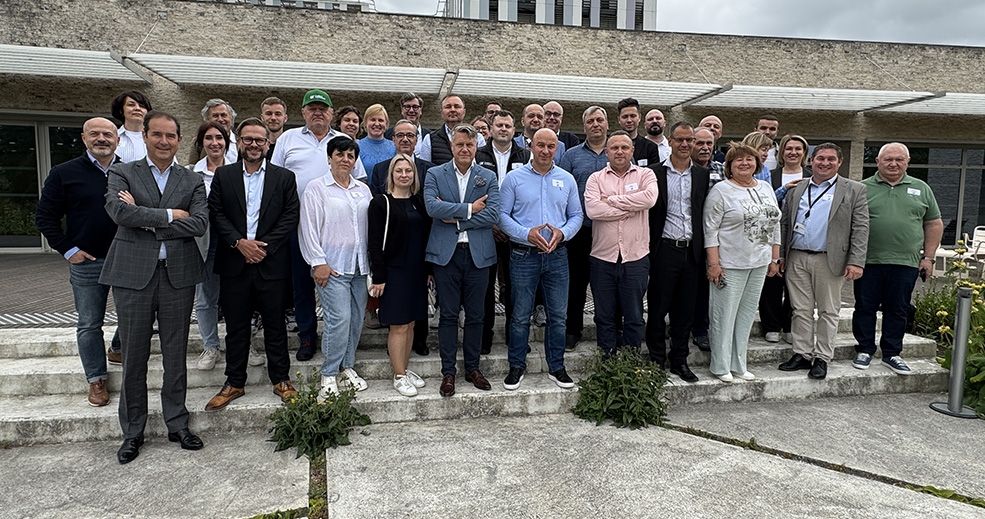
20 clients of Credit Agricole Ukraine from the small and medium-sized business and agriculture segments visited Val de France, a regional bank of the international group
USAID has left — life goes on
Latifundist.com: Alexandre, has USAID being pulled from the market affected the finance sector? And Crédit Agricole operations in particular?
Alexandre Tchesnakoff: I think it has, to some extent. In 2024, we signed a grant program with USAID on lease. USAID pulling from the market has led to the program and grants being suspended. It affected everyone: the bank and the customers. However, I wouldn’t say it was a hard blow. In our case it concerned only the grants, not financing. I know that other finance market players were a lot more dependent on USAID.
By the way, we did recruit several former USAID employees, one of them – this week. They are good experts. So, a negative on one hand, a positive on the other.
Latifundist.com: USAID specialized on supporting small farmers and you once mentioned that you would like to work with customers like that. How do you segment this area? E.g., are there any limits in terms of land bank size?
Alexandre Tchesnakoff: Previously we also financed smaller farms with land banks starting at 200 hectares. Now we have decided to actively grow this segment, developed special products, quick solutions with a simplified package of documents. We launched pilot projects in Poltava and Kirovohrad regions. If the outcome is positive, we will expand the practice for other regions in Ukraine.
Latifundist.com: Does the pilot project have any specific objectives in these two regions? Such as what amount to finance or which industries to support?
Alexandre Tchesnakoff:
The objective of the pilot is to make sure that our projects and processes meet small farmers’ expectations. We want to offer them services that will benefit them.
The bank has been working in Ukraine for 32 years and helps agribusiness attract financing. We strive to do it for international corporates, large agrarian holdings, medium-sized agro-industrial enterprises as well as for smaller farms that are in need of financial support. We are hopefully looking into our shared future.

 Useful information
Useful information
 Useful information
Useful information
 Useful information
Useful information
 Useful information
Useful information
 Useful information
Useful information
 Useful information
Useful information
 Useful information
Useful information
 Useful information
Useful information
 Useful information
Useful information
 Useful information
Useful information
 Useful information
Useful information
 Useful information
Useful information
 Useful information
Useful information
 Useful information
Useful information
 Useful information
Useful information









